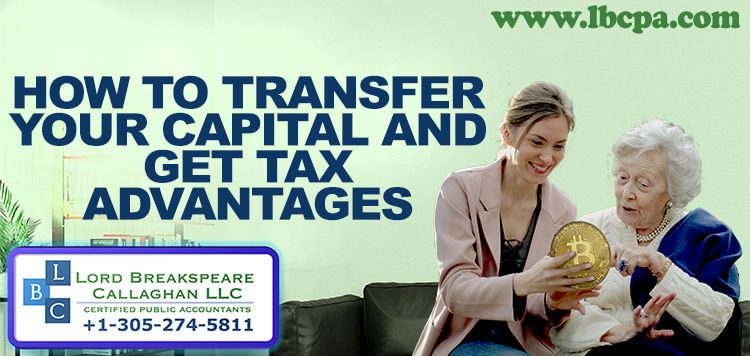LBCPA News 
Click here to go back
Determining the Right Time to Transfer Wealth to Your Heirs

To gift or not to gift? It’s a deceptively complex question. The temporary doubling of the gift and estate tax exemption (to an inflation-adjusted $12.92 million in 2023) is viewed by many as a “use it or lose it” proposition. In other words, if you have a large estate, you should make gifts now to take advantage of the high exemption before it sunsets at the end of 2025 (or sooner if lawmakers decide to reduce it earlier).
But giving away wealth now isn’t right for everyone. Depending on your circumstances, there may be tax advantages to keeping assets in your estate.
Lifetime gifts vs. bequests at death
The primary advantage of making lifetime gifts is that, by removing assets from your estate, you shield future appreciation from estate taxes. But there’s a tradeoff: The recipient receives a “carryover” tax basis, meaning that the recipient assumes your basis in the asset. If a gifted asset has a low basis relative to its fair market value (FMV), then a sale will trigger capital gains tax on the difference.
An asset transferred at death, however, receives a “stepped-up” basis equal to its date-of-death FMV. That means the recipient can sell it with little or no capital gains tax liability. So, the question becomes, which strategy has the lower tax cost: transferring an asset by gift (now) or by bequest (later)?
The answer depends on several factors, including the asset’s basis-to-FMV ratio, the likelihood that its value will continue appreciating, your current or potential future exposure to gift and estate taxes, and the recipient’s time horizon (how long you expect the recipient to hold the asset after receiving it).
3 examples
Let’s looks at some examples. To keep things simple, we’ll always assume that you and your heirs are subject to tax on capital gains at a rate of 23.8% (the top capital gains rate of 20% plus the 3.8% rate on net investment income) and that the gift and estate tax rate is 40% of amounts in excess of the applicable exemption.
Example #1. You have $8 million in publicly traded securities with a $3 million basis and $3 million in other assets. You haven’t used any of your exemption amount. If you give the securities to your son, who sells them immediately for $8 million, he’ll owe $1.19 million in capital gains taxes [23.8% × ($8 million - $3 million)].
Suppose, instead, that you hold the securities for life, that the inflation-adjusted exemption in the year you die is $14 million, that the securities’ value has grown to $11 million, and that your other assets have grown to $4 million. If your son inherits the securities, he’ll receive a stepped-up basis of $11 million and can sell them tax-free. Your estate will be subject to estate taxes of $400,000 [40% × ($15 million - $14 million exemption)]. In this scenario, holding the securities is the better strategy from a tax perspective.
Example #2. Same facts as in the first example, except that your son plans to hold the securities for life rather than sell them. In this scenario, gifting the securities now is the better strategy because, by holding them, your son avoids capital gains taxes and there’s no estate tax because the future appreciation on the securities is removed from your estate.
Example #3. Again, the same facts as in the first example, except that when you die the exemption has dropped to $8 million, so your estate is subject to estate taxes of $2.8 million [40% × ($15 million - $8 million exemption)]. In this scenario, gifting the securities now results in a substantially lower tax bill, even if your son sells them immediately.
These three examples are highly simplified to illustrate the decision-making process. In the real world, many other factors may affect the overall economics, including an asset’s income-earning potential, the applicability of state income and estate taxes, and potential changes in capital gains and gift and estate tax rates.
Dealing with uncertainty
Determining whether to hold or gift assets is challenging because the best course of action may depend on future events. Work with your tax and estate planning advisors to monitor legislative developments and adjust your estate plan accordingly. And consider tools for building flexibility into your plan to soften the blow of future tax changes.
If you have any questions regarding Essential Business Accounting, Domestic Taxation, International Taxation, IRS Representation, U.S. Tax Implications of Real Estate Transactions or Financial Statements, please give us a call at +1-305-274-5811.
Source: Thomson Reuters






